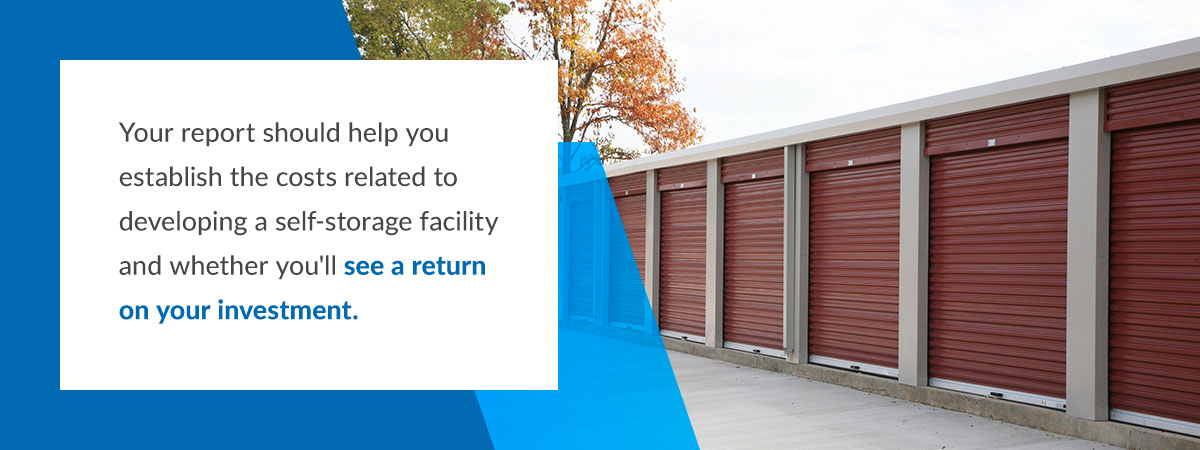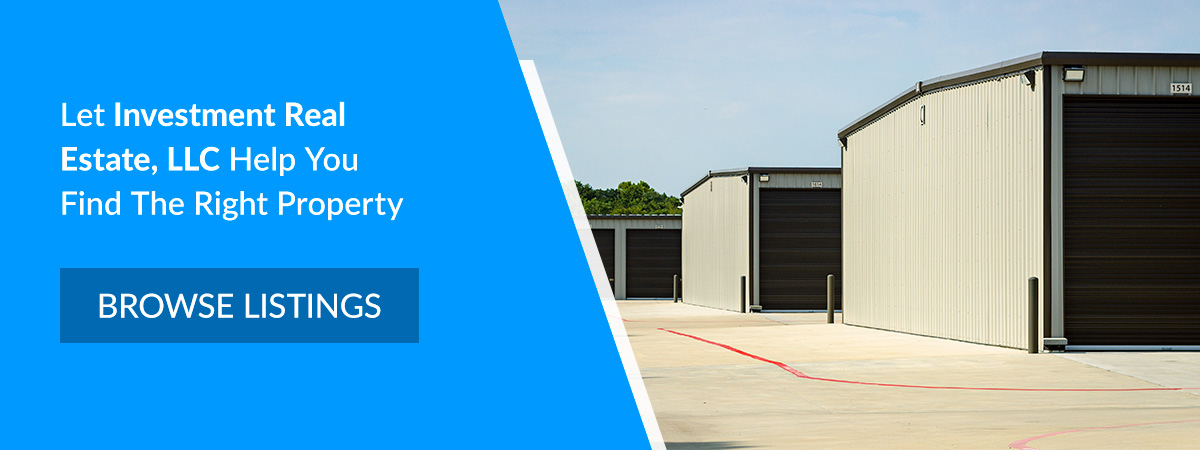How to Choose Land for Self-Storage Development

When considering a piece of land or property for a self-storage development, multiple factors come into play. Some land is more suitable for self-storage development than others, meaning you need to understand what’s involved in making the right choice for your new business.
You’ll mainly need to consider the data and insights you collect about the property. This data includes information about the market in the area, zoning laws and how the location will directly affect the success of your self-storage business. Below, we’ll go into more detail about these factors so you know everything you need to build a self-storage facility.
Perform a Feasibility Study
A feasibility study, also called a market analysis, helps you determine the practicality of your property. These studies help establish if the land you’re considering investing in is worth the time, effort and money. Every feasibility study report for a self-storage land development should include:
- Demographic analysis: The feasibility study report should inform you about the demographics in the chosen area, the potential for growth and how the current residents engage with other businesses in the area. Knowing the demographics in the area will help you determine if you will invest in a self-storage business with plenty of customers.
- Competition: Your feasibility study should also look at the competition in the area to help you see if your new self-storage business will be viable in your chosen location. If there is too much competition in that area, finding customers or convincing them to switch to your business may be challenging. You can also use this information to determine if your amenities compare to other facilities in the area and if they fair better or worse.
- Pricing: Your report should help you establish the costs related to developing a self-storage facility and whether you’ll see a return on your investment. It will also help you figure out how you should price your units to make a profit after your start-up costs and if you’ll be able to compete with other self-storage businesses in the area. Your report should look at the projected number for the next few years to know when you can expect returns.
- Climate control: An essential part of the self-storage business is climate-controlled units, protecting customers’ valued items. The feasibility study will help determine if other self-storage businesses in the area have climate-controlled units. If they don’t, you could take advantage of the opportunity to develop your own, attracting higher rates and setting you apart from the competition.
- Availability of land: Your feasibility report should help you determine how much of the land is available for development and list the site’s strengths and weaknesses. If the drawbacks outweigh the advantages, another location may be better for your facility.

Zoning
Zoning laws define how property can be developed and used. These laws ensure new developments benefit the community and regulate the land into specific categories, including residential, commercial, industrial, recreational and agricultural. Self-storage units don’t always fall into one of these categories and sometimes require a special zoning request. Different types of zoning or zoning requests include:
- Permitted usage: Permitted usage means a property owner can use land by right. No public hearings or applications are needed, making it a straightforward process.
- Conditional usage: Conditional usage means you must go through an application and hearing process for development and design plan approval. Conditional usage lets the government agency reduce the development’s impact while providing amenities and new businesses to the locals. You’ll discuss your proposed design plan with the locals and hear their concerns, such as the potential for increased traffic, property values and crime. The final step is the official hearing, which determines whether the government or municipality approves your development.
- Design Reviews: Design reviews involve the government or local jurisdiction approving the design of your self-storage facility. Land use has already been defined and often occurs with permitted usage. The local jurisdiction uses design reviews to ensure the development is compatible with surrounding businesses and aesthetics.
- Rezoning requests: If a piece of land isn’t in the correct category for a self-storage development, you can request a zoning change. Like conditional usage, you’ll meet with locals and the local government or municipality. The land category change will be approved at the final hearing, allowing you to build your new self-storage development.
Location
Your new development’s location is crucial as it could make or break your new business. Self-storage businesses with low-quality sites often perform worse than expected. Here are a few factors to consider when looking for the best land for self-storage development:
- Traffic: A self-storage facility on a frequently traveled road will fair better than one on a back road with few cars passing by each day. Look for other businesses, such as restaurants, gas stations or grocery stores, to indicate the traffic patterns in the area. You’ll also want to consider how easy it is to access your facility from the road and if your customers will be able to enter and leave with little difficulty.
- Visibility: Your storage facility must be visible to those who drive by. If your facility is tucked away behind other buildings or landscaping, you could miss out on new customers you would gain from those passing on the street. Choose a location easily visible from the road.
- Safety: Your customers want to feel their personal items are safe within your facility. If you choose a location in a high-crime area, people may take their business elsewhere to ensure the safety of their belongings. Research crime statistics in the area and invest in safety equipment to help your customers feel at ease when they work with your facility.
Reach Out to a Real Estate Professional for Guidance
If you’re having trouble finding the right property for your self-storage development, a real estate professional with experience buying land for self-storage development can be an excellent tool. These knowledgeable individuals are well-versed in the local area and know what to look for to ensure the property meets your needs.
Ensure they know what you are looking for in the land, such as a development site in your key market area or zoning requirements. Once your real estate professional finds a few options, visit each location in person so you can determine if the land is a good choice for your self-storage development.
Let Investment Real Estate, LLC Help You Find The Right Property

If you’re looking to find the perfect land for your self-storage development, look no further than Investment Real Estate, LLC. We offer multiple brokerage services across the Northeast and work exclusively with the self-storage industry, making us experts in the field.
You can browse our current listings to find the property that matches your development needs. We’ll also help you perform a feasibility study to ensure the property reaches the market you’re trying to target and has a chance for long-standing success. We can also provide you with self-storage credit reporting and a host of other services to help you throughout the process. Contact us today to learn more about how we can help you establish a successful self-storage business.

